Rob Bignell's Blog, page 348
January 3, 2014
Promote your book by blogging about it
Perhaps one  of the best ways to bring potential readers to your website is by blogging. With a blog, you’ll be providing a lot of fresh information on a variety of topics related to your book, increasing the chances that someone will stumble across your writing and then head to your website.
of the best ways to bring potential readers to your website is by blogging. With a blog, you’ll be providing a lot of fresh information on a variety of topics related to your book, increasing the chances that someone will stumble across your writing and then head to your website.
We’ll get more into the value of writing a blog and how to write such an entry in a future article. For now, let’s focus on constructing this page on your website.
First, you don’t have to stick with your website host to create a blog. Almost every website host offers such blogging pages, but they tend to have a number of problems with them. First and foremost, many of them are clunky to use compared to outside blog providers. Further, many prohibit advertisements that aren’t offered by their partners. One way a blogger can pick up a little extra cash is to post ads from Amazon.com or via Google AdSense that relate to their entries, and you don’t want to limit yourself. Finally, not all website hosts offer the greatest customer service. They may be fine for hosting a static website you’ve built, but if you’re going to work with the website every day or two, you need to have customer service and IT support that quickly responds to you needs.
Running your blog on another site (for example, I use Typepad and Blogger for my blogs though my websites are hosted by FreeServers), is easy enough – all you have to do is ensure that navigation links on both sites take you to the other. The one downside is that your blog’s format won’t look much like your website, but that also can work to your advantage. Since your blog will be in front of a lot of people, you probably want to make it look a little flashier than your website anyway. To compare, here’s my “Hikes with Tykes” blog using my website host’s template and here’s my “Hikes with Tykes” blog using Blogger.
Give your blog the same name as your website, though. Also, construct it with some similarities, so that readers can quickly make the connection between the blog and your website. For example, I’ve placed a picture of my book’s cover at the top of the far right column next to my text on both my blog and website.
Below the book cover on your blog, include a description of your book. This might be the same description you used on your website’s home page.
Also include a picture of yourself on your blog as well a bio. This can appear below the picture and description of your book in the right column. The bio can be the same text you used on your website’s About the Author page.
A blog is much easier to set up then you imagine. Most providers offer tutorials to take you through the process step-by-step. The first time I set up a blog, way back in 2003, I spent about four hours constructing the site, and that mainly involved seeing what different templates looked like and what each option did. The last blog I started, in 2012, took me a half-hour to set up.
Need an editor? Having your book, business document or academic paper proofread or edited before submitting it can prove invaluable. In an economic climate where you face heavy competition, your writing needs a second eye to give you the edge. I can provide that second eye.
Amazon.com Widgets
Related articles
 How long and frequent should author's blog be?
How long and frequent should author's blog be? How to drive traffic to your website
How to drive traffic to your website Attract and keep readers via blogging
Attract and keep readers via blogging
January 2, 2014
Use consistent quotation mark, apostrophe style
A common  problem that can sneak into your manuscript when self-publishing is a mix of quotation mark and apostrophe styles. That’s because some software programs use smart quotes, or those that are curved (e.g. “”), while others use dumb quotes, or those that are straight (e.g. ").
problem that can sneak into your manuscript when self-publishing is a mix of quotation mark and apostrophe styles. That’s because some software programs use smart quotes, or those that are curved (e.g. “”), while others use dumb quotes, or those that are straight (e.g. ").
Typographically in paperbacks, smart quotes (also referred to as curly quotes) are preferred over dumb quotes (also known as keyboard quotes). When self-publishing an ebook, you can use either style, but you want to be consistent and exclusively use one.
If you have a mix of styles, simply do a global search and find, and replace all of the quotation marks and apostrophes with one style. In Microsoft Word, to replace dumb quotes with smart quotes, first highlight and copy a smart quote in the text (You may have to type one.). Then highlight a dumb quote and in the command ribbon under the Home tab, hit “Replace”. A screen should pop up with the dumb quote in the “Find what” box. Paste the smart quote in the “Replace with” box and hit “Replace all”. This will replace both the opening and the ending quotation mark throughout the document. Finally, repeat this process for apostrophes.
Be careful to not include extra spaces before or after the quotation mark/apostrophe in the “Find what” or the “Replace with” boxes. In the case of the former, an extra space may mean not finding all of the quotation marks that need to be replaced; in the case of the latter, an extra space will introduce a new error into your manuscript – an unneeded space between the quotation mark/apostrophe and the letter that comes after or before it.
Need an editor? Having your book, business document or academic paper proofread or edited before submitting it can prove invaluable. In an economic climate where you face heavy competition, your writing needs a second eye to give you the edge. I can provide that second eye.
Amazon.com Widgets
Related articles
 Place commas inside quotation marks
Place commas inside quotation marks (You can't own) bachelors vs. bachelor's degree
(You can't own) bachelors vs. bachelor's degree
January 1, 2014
Motivate yourself to write this year!
Most who 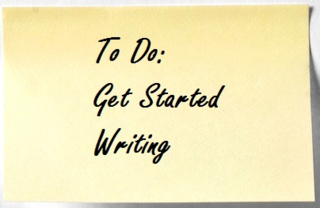 write find themselves filled with anxiety and self-criticism as they pen their paragraphs and compare it to those authors who inspired them to write. And then there’s always the frustration that comes when the right word (or even no words) won’t come.
write find themselves filled with anxiety and self-criticism as they pen their paragraphs and compare it to those authors who inspired them to write. And then there’s always the frustration that comes when the right word (or even no words) won’t come.
As Karl Iagnemma, an MIT roboticist who also happens to be an acclaimed fiction writer, once said, “A lot of people, when they think about writers, probably imagine people wasting time in cafés, drinking a lot and smoking too many cigarettes, and working when the inspiration – whatever that is – seizes them. But writing is rigorous. Writing, for me at least, takes a lot of concentrated work and effort. It takes dedication and the willingness to do the work even when that feeling of inspiration isn’t there at all.”
Writing may be hard work, but the rewards are worth the effort. Fortunately, there are a number of ways you can get motivated to write:
g Keep a project “bible” – Create a notebook of reference materials in a 3-ring binder of loose-leaf paper. Often “inspiration” will strike on one of those ideas. At least it gives you a collection of ideas you can back to when you don’t know what to write about.
g Keep a daily log – Track how many words you wrote and challenge yourself to top it the next day.
g Keep a journal – Often the kernels of stories later can be found in your journal.
g Keep in touch with fellow writers – They can offer encouragement and provide advice when you’re stuck.
g Start with free-writing – Sometimes when driving aimlessly you see a billboard that gives you an idea for a vacation. The same can occur when writing – sometimes when writing aimlessly you develop an idea that can be turned into a story.
g Begin your writing by revising work already completed and continue onward – At the very least, you’ve polished your past day’s work and may have identified trouble spots that you need to mull over to solve.
g Stop at a good point – If you’ve had a productive writing session, put down the pen at a point where you already know what you want to do next. You will not be stymied when starting the next day.
g Keep plugging along – No matter the quality of your work or the number of rejections you receive, don’t stop writing. The biggest mistake those who want to be writers can make is to not write.
A few writers employ rituals to help them get started writing. But most don’t as the rituals only delay the actual hard work of writing. As Isaac Asimov once said when asked about rituals, “Rituals? Ridiculous! My only ritual is to sit close enough to the typewriter so that my fingers touch the keys.”
Need an editor? Having your book, business document or academic paper proofread or edited before submitting it can prove invaluable. In an economic climate where you face heavy competition, your writing needs a second eye to give you the edge. I can provide that second eye.
Amazon.com Widgets
Related articles
 How do you know when your book is done?
How do you know when your book is done? Five Great Quotations about the Power of Writing
Five Great Quotations about the Power of Writing Five Great Quotations about Why We Must Write
Five Great Quotations about Why We Must Write Five Great Quotations about Business of Writing
Five Great Quotations about Business of Writing Five Great Quotations about Editing
Five Great Quotations about Editing
December 31, 2013
Select right word to avoid reader confusion
In any story 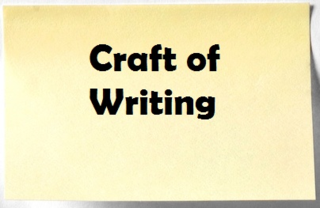 you tell, your choice of words matters. Selecting the wrong word can lead to a number of problems that quickly turns off the reader to your writing.
you tell, your choice of words matters. Selecting the wrong word can lead to a number of problems that quickly turns off the reader to your writing.
Poor word choice results in three general issues: clarity, vagueness and awkwardness.
Clarity
The worse possible outcome of selecting the wrong word will be readers having no idea what you’re writing about. That forces them to reread the sentence or passage, which increases the chances that they’ll lose track of the storyline. You can be unclear in a number of ways:
g Misused words – Sometimes a similar sounding word is used, as in Our building is assessable by wheelchair. The writer really meant accessible.
g Unwanted connotations or meanings – Often the reader will laugh at such sentences, for example, The stowaways knew the only way to stop the pecan truck was to dump the man’s nuts all over the road.
g Ambiguity – While jogging through the park, a dog darted in front of Dawn is confusing because the reader doesn’t know if the dog or if Dawn were jogging.
g Subjective tension – If you wrote He raised his eyes, you wouldn’t literally mean that the character moved higher on his forehead, but the wrong word choice here creates a difference between what you’ve written and what you wanted to say.
g Jargon/technical terms – Unless the reader is a bicycle repairman, Because the fork had a negative air chamber, Tony removed the cover cap from the bottom of the left fork leg will make little sense.
Vagueness
Using inexact and fuzzy words leads to bland sentences that fail to create a vivid picture of what is occurring. For example: She seemed really tall.
Words like seemed and really don’t give the reader a detailed enough picture of the scene or character. Was she tall or not? And if she was tall, then just how high was she?
Awkwardness
Sentences become difficult to understand because using the wrong word forces a writer create structures that make only a little sense. This almost always results in a sentence lacking rhythm. For example: My buddies were more anticipating than the dates.
The writer means to say that his buddies are feeling a greater sense of anticipation than their dates. That makes more anticipating a poor word choice. To correct it, a different form of the words more anticipating needs to be used and the sentence should be slightly restructured, perhaps as, My buddies enjoyed a greater sense of anticipation than their dates.
Need an editor? Having your book, business document or academic paper proofread or edited before submitting it can prove invaluable. In an economic climate where you face heavy competition, your writing needs a second eye to give you the edge. I can provide that second eye.
Related articles
 When should you start a new novel chapter?
When should you start a new novel chapter? How long and frequent should author's blog be?
How long and frequent should author's blog be?
December 30, 2013
Create meaningful settings in your story
Setting is  the story’s time and the place in which the plot unfolds. Sometimes it’s referred to as the “scene.”
the story’s time and the place in which the plot unfolds. Sometimes it’s referred to as the “scene.”
For example, in "Star Trek: The Original Series", the setting typically is the 23rd century and various parts of the starship Enterprise, such as the bridge, sickbay, engineering and transporter room. The various locations that the landing party visits on the planet also is part of the setting.
Setting helps shape your story’s color and mood. The conflicts the characters face hinge on the setting and the situations it creates for the characters. On occasion, the setting itself must be transformed as the main character resolves his central problem.
When describing the setting, follow these rules:
g Give concrete details of the place – Appeal to as many senses as possible. All of us live in a world in which we constantly see, hear, smell, taste and touch. So also should your characters. We’ll discuss this more in the next step.
g Ask how your main character would perceive this place – Write your description of the setting from that viewpoint.
g Divide descriptions of the setting into three sections – For example, start with the foreground, then in the next couple of sentences go the middle and at paragraph’s end to the background. Or try left-center-right or sky-eye level-ground.
Need an editor? Having your book, business document or academic paper proofread or edited before submitting it can prove invaluable. In an economic climate where you face heavy competition, your writing needs a second eye to give you the edge. I can provide that second eye.
Amazon.com Widgets
Related articles
 Ensure descriptive writing serves a purpose
Ensure descriptive writing serves a purpose Shun beautiful writing done for beauty's sake
Shun beautiful writing done for beauty's sake Get ideas from you head onto paper
Get ideas from you head onto paper
December 29, 2013
Five Great Quotations about Readers
“People do 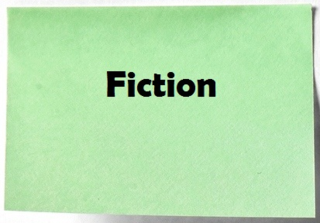 tell a writer things that they don’t tell others. I don’t know why, unless it is that having read one or two of his books they feel on peculiarly intimate terms with him; or it may be that they dramatize themselves and, seeing themselves as it were as characters in a novel, are ready to be as open with him as they imagine the characters of his invention are.” – W. Somerset Maugham
tell a writer things that they don’t tell others. I don’t know why, unless it is that having read one or two of his books they feel on peculiarly intimate terms with him; or it may be that they dramatize themselves and, seeing themselves as it were as characters in a novel, are ready to be as open with him as they imagine the characters of his invention are.” – W. Somerset Maugham
“There is creative reading as well as creative writing.” – Ralph Waldo Emerson
“What really knocks me out is a book that, when you're all done reading it, you wish the author that wrote it was a terrific friend of yours and you could call him up on the phone whenever you felt like it. That doesn't happen much, though.” – J.D. Salinger
“Writing is an occupation in which you have to keep proving your talent to those who have none.” –Jules Renard
“Easy reading is damn hard writing.” – Nathaniel Hawthorne
Need an editor? Having your book, business document or academic paper proofread or edited before submitting it can prove invaluable. In an economic climate where you face heavy competition, your writing needs a second eye to give you the edge. I can provide that second eye.
December 28, 2013
Ready your story for submission to publisher
When submitting  a story to a magazine or a book publisher, your manuscript should appear in a specific format. Following this format is important for a number of reasons. First, the format makes reading easier for an editor. You certainly would rather want an editor to spend more time enjoying your writing then trying to figure out what words you’ve written. In addition, using a manuscript format is a sign of professionalism. After all, if you can’t make the effort to present your story in a readable form, then an editor probably is wondering if you’ve taken the time to write a quality story.
a story to a magazine or a book publisher, your manuscript should appear in a specific format. Following this format is important for a number of reasons. First, the format makes reading easier for an editor. You certainly would rather want an editor to spend more time enjoying your writing then trying to figure out what words you’ve written. In addition, using a manuscript format is a sign of professionalism. After all, if you can’t make the effort to present your story in a readable form, then an editor probably is wondering if you’ve taken the time to write a quality story.
Here are some manuscript basics to follow:
g Paper – Use white 8.5 x 11 bond; 20 pound is sufficient. This is the standard letter-sized paper that you’d put in a photocopy machine or a printer. Do not use erasable paper.
g Margins – Leave 1 inch of blank space on each side of the paper.
g Typeface – 12 pt. Times New Roman. Don’t use boldface or italics; instead, underline words when you intend for italics to be used in the text.
g Alignment – Run the text ragged right (aka justified left).
g Double space – No extra space should appear between the paragraphs, however.
g Indentation – Indent the first line of each paragraph by 3-5 spaces.
g Sides of paper – Type on only one side of the paper.
g First page of short stories – Place your name, address, phone number and the word count on the first page. Don’t place the “rights offered” on the first page. Center your title about 15 lines from the top, then put “by” and your name beneath it. Use the name you want to be published under at this point in the manuscript.
g Headers – For the second and subsequent page, an inch from the top in the upper right corner of each page type your name, story title, and the page number.
g Ending – At the story’s end, center “END” in capital letters two lines below the last line.
g Printer quality – Use fresh toner or ribbon. Don’t send “draft-quality dot matrix” copies (yes, some people still are using those printers).
While the manuscript basics presented here are fairly standard across the industry, always read the magazine’s or publisher’s writer’s guidelines to see if they have some unique requirement that breaks these recommendations. This is particularly true for e-magazines, which also are concerned about the ease of posting your accepted story onto a website.
Need an editor? Having your book, business document or academic paper proofread or edited before submitting it can prove invaluable. In an economic climate where you face heavy competition, your writing needs a second eye to give you the edge. I can provide that second eye.
Amazon.com Widgets
Related articles
 How do you know when your book is done?
How do you know when your book is done? Fixing tab errors when formatting an ebook
Fixing tab errors when formatting an ebook Editing client publishes first fantasy novel
Editing client publishes first fantasy novel
December 27, 2013
Use YouTube to promote your book
Along with  the Google search engine, YouTube now is the most popular way for finding information on the web.
the Google search engine, YouTube now is the most popular way for finding information on the web.
And why shouldn’t it be? Human beings are visual creatures – we like to see things rather than just have them explained to us. With three generations now having grown up with television dominating their free time, people are attuned to video presentations.
To get on YouTube, you’ll need to create a “channel,” which essentially is the same as an account.
The ins and outs of creating and editing videos fall beyond the purview of this blog. Rest assured, several useful, easy to understand tutorials exist online and in book format, however. I also should note here that you probably will need to buy some equipment and software to create a video. Don’t consider this a daunting task, though; you might be surprised by how easy and fairly inexpensive it is to do (If you have teens, they probably can set you up!). If you have a webcam on your laptop, you’re already off to a good start.
Most videos are short – anywhere from a couple of minutes to around 10 minutes. Currently, YouTube allows you to upload HD videos in various formats for up to 15 minutes.
So what do you make a video about? Almost anything you a might blog about. For example:
g Public appearances – Run snippets of your book readings and guest speaking appearances at writing conferences or in roundtable discussions.
g Your tips on subject matter – If you’ve penned fiction, you might focus on the craft of writing. If you’re authored a nonfiction book, share advice about your subject matter.
g Answer readers’ questions – Such questions might include seeking of advice on the subject matter you wrote about, wondering why certain events occurred in your novel, or inquiries about your background.
g Any news about your writing – Announcements of upcoming articles and books, awards received, and updates to readers on how far along your next book is all are possibilities.
g Your thoughts on other books – Review books in your genre or on your subject matter. As on your blog, don’t write a scathing review lest you sound like you’re only trying to plug your book.
During these videos, always make sure that you mention you’re the author of such-and-such a book. Remember, the idea of the video is to plug your book so you can increase sales.
Once you’ve posted a video to YouTube, you automatically can post a link to it on Facebook and send out a tweet on it at Twitter. You also should mention it on your blog with a link to the video (or just repost the video to your blog).
Finally, one neat aspect of You Tube is that you can monetize your videos; that is, you can place ads on them that can earn you dollars. As with your blogs, unless you become an extremely popular writer, this is an extra stream of revenue that probably won’t amount to much. But who’s counting dollars?
Need an editor? Having your book, business document or academic paper proofread or edited before submitting it can prove invaluable. In an economic climate where you face heavy competition, your writing needs a second eye to give you the edge. I can provide that second eye.
Related articles
 Writers can blog about variety of topics
Writers can blog about variety of topics Writing your nonfiction book's bibliography
Writing your nonfiction book's bibliography How long and frequent should author's blog be?
How long and frequent should author's blog be? How to drive traffic to your website
How to drive traffic to your website
December 26, 2013
Submitting do’s and don’ts for magazines
So you’ve 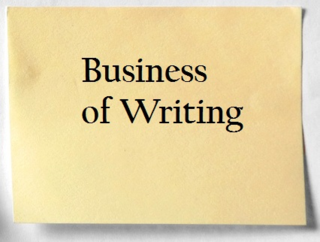 got a story written and are about to send it to a magazine or a publisher. Congratulations! One of the largest barriers preventing beginning writers from becoming established is that they never finish their work.
got a story written and are about to send it to a magazine or a publisher. Congratulations! One of the largest barriers preventing beginning writers from becoming established is that they never finish their work.
But now that you’re ready to send out a short story or novel, there are some professional guidelines to follow. These “rules” largely are intended to make life simple for editors, who literally wade through hundreds of manuscripts a month. Failure to follow them is disrespectful of the editor.
In any case, not meeting these standards makes reading your piece more difficult, and anything that distracts editors from your actual story works against you. Many good manuscripts are rejected simply because there aren’t enough slots in a magazine or a publisher’s schedule for them. There’s no reason to give a competing piece of equal value the edge simply because you didn’t follow some basic professional guidelines.
Don’ts
When submitting a manuscript for publication, don’t:
g Send it in non-manuscript form so it stands out (colored paper, colored ink, specialty typeface)
g Bind your manuscript with staples, ring binders, clamp binders, comb binders, strings or brads; paper clips and rubber bands are OK but unnecessary
g Place each page of your manuscript in a sheet protector
g Place a creation date on the manuscript
g Place a rights offered statement on the manuscript or in the cover letter
g Place a copyright symbol on the manuscript
g Write a cutesy cover letter
g Beg the editor to buy your manuscript so you can pay for some emotionally moving cause
g Warn the editor not to steal your ideas (don’t worry, he won’t)
g Place extra spaces/an extra line between paragraphs
g Place -30- at the end of the story
g Turn a page upside down, dog-ear a page, or paste two of them together to see if the editor has read the piece
g Send it in safe-deposit boxes, couriered envelopes, wrapped in fancy paper
g Make your envelope cute: tie-dying it, covering it in stickers, or writing political statements all over it
g Send it to the wrong address; this includes sending it directly to the editor even though the guidelines say to send it to another email address or to send it only by snail mail
g Submit more than one story at a time, unless the writers’ guidelines say you can
g Send your story to two or more magazines at the same time, unless the writers’ guidelines say you can; a story sent two or more editors is called a “simultaneous submission”
g Send a gift to the editor
g Miss deadlines
Do’s
When submitting a manuscript for publication, do:
g Send a SASE (self-addressed stamped envelope)
g Send you stories to an editor whose choices you already like; he’s more likely to like yours
g Be willing to work with an editor who suggests changes
g Call an editor or agent to talk about questions and problems concerning business if your manuscript has been accepted (but don’t overdo the calls)
Need an editor? Having your book, business document or academic paper proofread or edited before submitting it can prove invaluable. In an economic climate where you face heavy competition, your writing needs a second eye to give you the edge. I can provide that second eye.
Amazon.com Widgets
Related articles
 Making sense of sensuous vs. sensual
Making sense of sensuous vs. sensual
December 25, 2013
Do the right thing: Altar vs. alter
There are 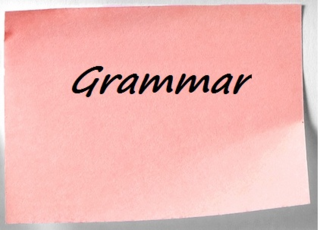 days that some editors pray writers will change their habits with these two words.
days that some editors pray writers will change their habits with these two words.
Altar is a noun in describing a place where religious ceremonies are held: The priest offered communion at the altar.
Alter is a verb meaning to modify or adjust: The engineer knew he would have to alter the design to make the device more efficient.
In other words, you can pray at an altar that people will alter their behavior!
Need an editor? Having your book, business document or academic paper proofread or edited before submitting it can prove invaluable. In an economic climate where you face heavy competition, your writing needs a second eye to give you the edge. I can provide that second eye.
Amazon.com Widgets
Related articles
 Time to get it right: Past vs. passed
Time to get it right: Past vs. passed Concrete advice on literally vs. figuratively
Concrete advice on literally vs. figuratively Avoid using ALL CAPS in your writing
Avoid using ALL CAPS in your writing Mimic sounds to appeal to sense of hearing
Mimic sounds to appeal to sense of hearing Work off the fat from overwritten descriptions
Work off the fat from overwritten descriptions



